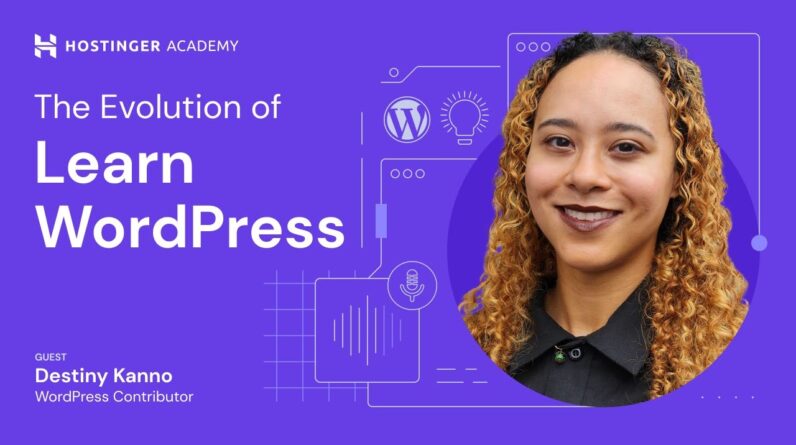
"Faster Hosting with FREE SSDs, Pre-Installed WordPress + Free Web Builder, 24/7 US Based Support"
Unlimited Bandwidth, Storage and Email, $150 Ad Credits with Bing, Yahoo, and Amazon, 20x Faster Hosting
Welcome to our latest blog post where we will dive into the topic of Gutenberg, the revolutionary editor for WordPress. In this post, we will explore how Gutenberg is empowering users to create stunning websites without needing technical knowledge. Furthermore, we’ll discuss the future of the editor and its role in the WordPress ecosystem. So grab a cup of coffee, sit back, and let’s get started!
Table of Contents
How Gutenberg Empowers Users and Its Future in the WordPress Ecosystem
Introduction
WordPress has been around for over 17 years. It has been through many changes, but the biggest change came in 2018 with the introduction of Gutenberg. Gutenberg changed the way users interact with WordPress by introducing block-based editing. This new editing system allowed users to customize their websites even further, and with greater ease than before. Today, we will talk about how Gutenberg empowers users and its future in the WordPress ecosystem.
The Beginning
Before we can talk about the future of Gutenberg, we need to talk about its beginning. Gutenberg was introduced as the new editor for WordPress in 2018. It was named Gutenberg after Johannes Gutenberg, who invented the movable type printing press in the 15th century. The idea behind the new editor was to modernize the WordPress experience by introducing a block-based system that allows users to create and customize their websites with ease.
How Gutenberg Empowers Users
Gutenberg empowers users by allowing them to take control of their websites. The block-based editing system is more intuitive than the classic editor. With the block-based system, users can customize every aspect of their website. Images, text, videos, and other media elements can be added to a website with ease.
Here are some ways in which Gutenberg empowers users:
- Customization: Gutenberg allows users to create custom blocks that can be used repeatedly throughout their websites. This saves users time and effort in editing their websites.
- Efficiency: The block-based editing system is more efficient than the classic editor. Users can create and edit multiple blocks at once, which increases their productivity.
- Flexibility: Gutenberg gives users more control over their website’s layout. Users can create a unique layout for their website by adding and moving blocks around.
The Future of Gutenberg
The future of Gutenberg is bright. WordPress is continually investing in the editor, and it has a dedicated team of contributors working on improving it constantly. The development cycle is iterative, which means that issues are fixed regularly, and new features are introduced often.
Here are some ways Gutenberg will evolve in the future:
- Experimentation: Tammie Lister, a WordPress core contributor, was a guest on the Hostinger Academy podcast. She discussed how Gutenberg evolves through experimentation and benefits its users. With experimentation, the team can identify issues and challenges with the editor and come up with solutions for them.
- Collaboration: WordPress has made collaboration a priority with its Five for the Future initiative. The initiative encourages businesses to spend 5% of their resources on the WordPress project. This helps fund the development of WordPress, including Gutenberg.
- Education: WordPress is investing in education through its Learn WordPress tutorials and workshops. These tutorials help users learn how to use Gutenberg to its fullest potential.
- Resources: Hostinger Academy’s WordPress Tutorials playlist and WordCamp EU provide users with additional resources and knowledge about Gutenberg.
- Discount: Hostinger offers a 10% discount on starting a WordPress website with the code HA10.
FAQs
- What is the difference between Gutenberg and the classic editor?
- Gutenberg is block-based, while the classic editor is a text editor.
- What makes Gutenberg more intuitive than the classic editor?
- The block-based system is more intuitive than the classic editor because it allows users to visualize their website layout and customize blocks easily.
- Can users create custom blocks with Gutenberg?
- Yes, users can create custom blocks with Gutenberg, which saves time and effort.
- How can users learn more about Gutenberg?
- Users can access Hostinger Academy’s WordPress Tutorials playlist, WordCamp EU, and the Learn WordPress tutorials and workshops.
- Where can viewers follow Hostinger Academy?
- Viewers can follow Hostinger Academy on TikTok, Twitter, Facebook, and their WordPress Explained Group. They can also access Hostinger Tutorials and subscribe to the Hostinger Academy YouTube channel for more podcast episodes. Additionally, viewers can join the Facebook group for additional help/questions.
Conclusion
Gutenberg is the future of WordPress. It has already empowered users with its block-based editing system and will continue to do so in the future with experimentation, collaboration, and education. Hostinger offers users a 10% discount on starting a WordPress website with the code HA10. Users can learn more about Gutenberg by accessing resources such as Hostinger Academy’s WordPress Tutorials playlist, WordCamp EU, and the Learn WordPress tutorials and workshops. Follow Hostinger Academy on TikTok, Twitter, Facebook, and their WordPress Explained Group, and subscribe to the Hostinger Academy YouTube channel for more podcast episodes. Additionally, viewers can join the Facebook group for additional help/questions.







